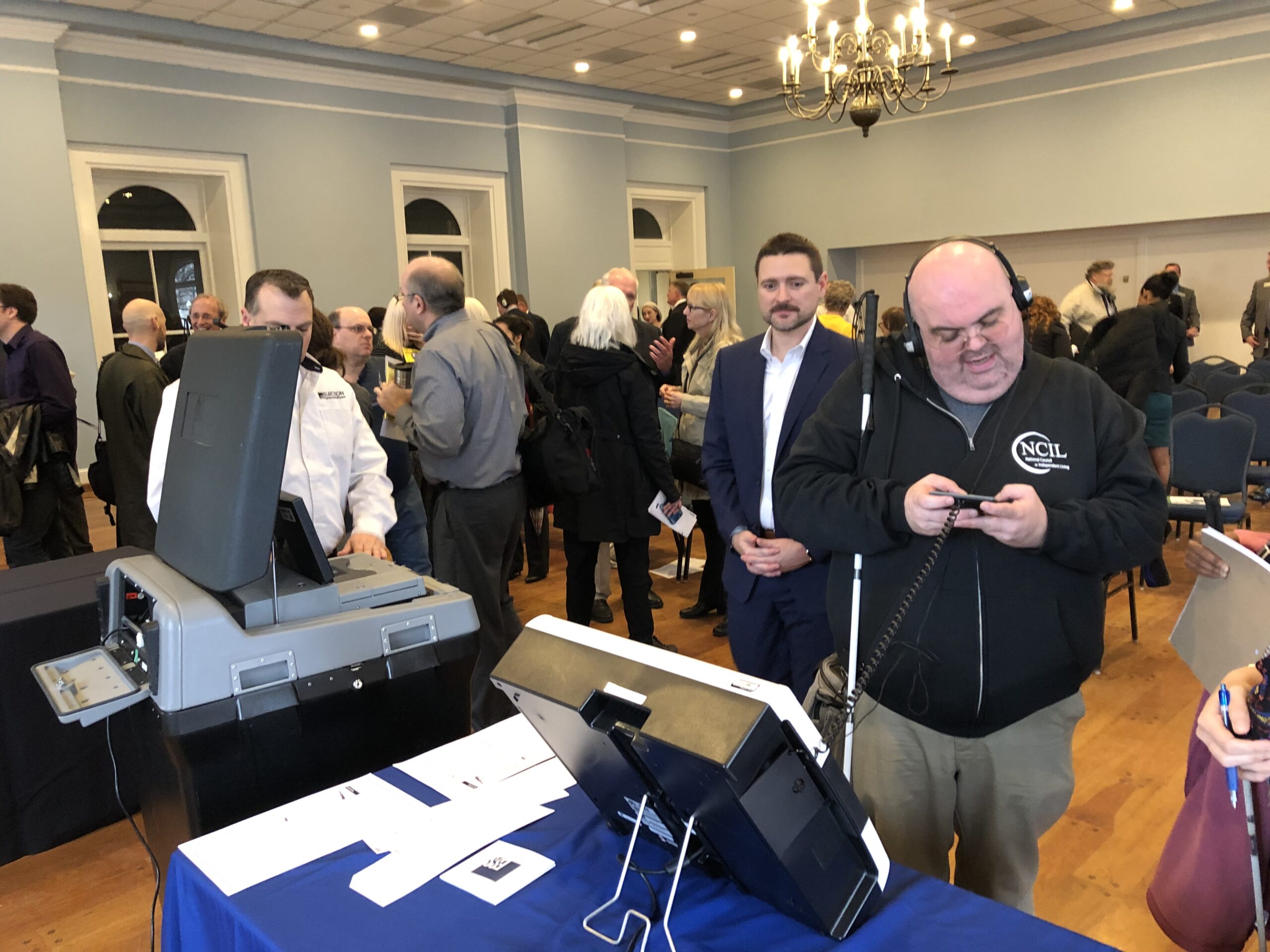Potential Replacements To Georgia’s Voting Machines Get Test From Public

All of the technology on display Thursday included some kind of paper trail, but the way ballots were marked and cast varied.
Johnny Kauffman / WABE
The public on Thursday got its first chance to try out some of the possible replacements to Georgia’s 16-year-old voting machines.
At the Georgia Freight Depot, near the state capitol building, five voting companies from around the country showed off their technology.
The companies, Clear Ballot, Dominion Voting, Elections Systems and Software, Hart InterCivic, and Smartmatic USA, have all responded to Georgia’s “request for information” on options to replace the state’s current voting machines.
Robis Elections and Unisyn Voting Solutions also responded to the request, but did not attend Thursday’s event.
It was set up by the Secure, Accessible, and Fair Elections commission formed by Governor-elect Brian Kemp to review how Georgia might switch to a new voting system. Kemp was secretary of state when he established the commission.
Cyber security experts say Georgia’s electronic-only machines are vulnerable to hacking because they lack a paper trail voters can check for themselves.
All of the technology on display Thursday included some kind of paper trail, but the way ballots were marked and cast varied.
Liz Throop from DeKalb County was one member of the public who was glad to have a chance to try out the potential replacements to the state’s machines.
“It affects every single Georgian,” she said. “All of us. Whether you vote or not it affects you.”
The commission has been grappling with how to move to a paper system but still make voting accessible, and the event Thursday gave people with disabilities a chance to try out some replacements to Georgia’s current machines.
“All this talk about going to paper is concerning to us because it’s excluding a huge part of the population in Georgia,” said Danny Housley, who works with Tools for Life, Georgia’s Assistive Technology Act program, and is himself blind with limited vision.
But Housley was encouraged after trying one voting machine that guides the voter through the ballot as they listen on headphones, and make their selections on a small handheld device.
Georgia’s current voting machines have a similar feature, but Housley said he preferred the version on the system he tested, and hoped to be involved in the selection of new machines in the next year.
A lawyer for the state has said if Georgia doesn’t switch to a paper-based system by 2020, a court will likely order it to do so.
The state legislature is set to take up the issue when its annual session begins Jan. 14.








